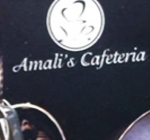
the art of packaging
My daughter likes to eat muah chee. Last week, I discovered one of my favourite lunch spots sold excellent muah chee in quantities of two, neatly presented in a ...
More


the art of packaging
My daughter likes to eat muah chee. Last week, I discovered one of my favourite lunch spots sold excellent muah chee in quantities of two, neatly presented in a ...
More

amali's quaint and quiet corner
Whenever I am out and about town on my own, I am wont to walk into a quiet eatery and just dine on my own, and while away the minutes with a magazine or paper. ...
More

pasta la vista!
The Italians own the pasta that we are all familiar with now and how lucky they are for it is such a wonderfully versatile ingredient that appeals to ages from 1 ...
More